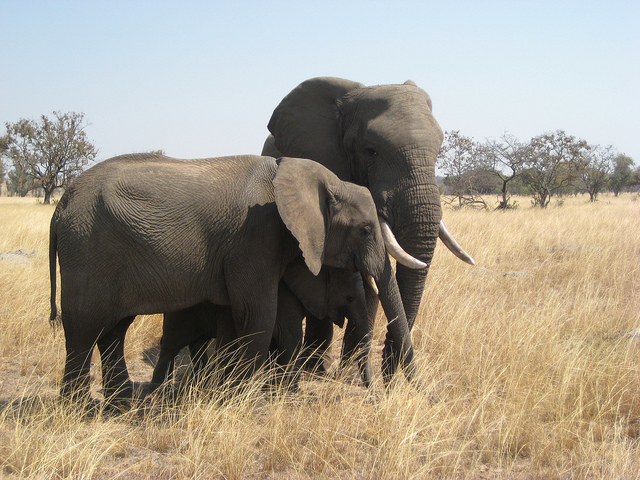For almost any conservation policy issue, the most important question is one that doesn’t make for a good headline: compared to what?
Take the Trump administration’s controversial decision to reverse a ban on importing of exotic hunting trophies from Zimbabwe and Zambia. There was a significant public outcry against the decision based on people’s intuition that hunting rare species is not a good way to protect them.
While I’m sympathetic to that intuition, you have to ask “compared to what?” Trophy hunting is not pretty, but it can be an effective way to create incentives to deter poaching, reduce human-wildlife conflict, and increase the incentives to protect rare species. Last year, College Humor made a good video explaining the case for hunting and lightly mocking the knee-jerk rejection of it.
Many rare species—especially predators and large, destructive animals, like elephants— impose significant costs on the rural poor in developing countries. Wishing that wasn’t so won’t help to overcome the incentive problem. If hunting is banned, those incentives will continue to undermine conservation, as PERC’s Terry Anderson and Hannah Downey explain in the Wall Street Journal:
When hunting is prohibited, wildlife bears the cost. Before Kenya banned hunting in 1977, it was home to 167,000 elephants. By 2013 the number had fallen to 27,000, all in protected areas such as national parks. That’s because poaching the animals for bushmeat was rampant. A 2012 study found that eliminating hunting revenues can be bad for lion conservation because it can “reduce tolerance for the species among communities where local people benefit from trophy hunting, and may reduce funds available for anti-poaching.”
That’s not to say that trophy hunting is a silver bullet (sorry). Institutions matter a great deal. Although it has been largely lost in the commentary on the President’s recent decision, the Obama administration imposed the ban on trophy imports from Zimbabwe and Zambia because of concerns that those nations’ institutions were failing, not any doubt about trophy hunting’s role as a conservation tool. Zimbabwe, which is in the news this week because of the ousting of its longtime despot, had not updated its wildlife management plan in nearly twenty years nor provided updated information to show that trophy hunting was contributing to conservation in the country.
For years, many questioned whether trophy hunting was merely feeding corruption in Zimbabwe, rather than creating revenue and incentives for conservation.
In Zimbabwe, for instance, individuals associated with President Robert Mugabe have seized lands in lucrative hunting areas. . . . While a portion of the hunting fees foreigners pay (which can run into the tens of thousands of dollars) is earmarked for community projects such as CAMPFIRE, Emmanuel Fundira, Chairman of Safari Operators Association of Zimbabwe, told CBS News in October that rural councils get “nothing.” In most cases, he said, corrupt government officials take the money.
If a country is governed by a corrupt regime with little regard for property rights and the rule of law, that will distort incentives and undermine the benefits of trophy hunting. But, once again, it’s important to ask “compared to what?” More traditional, command-and-control conservation efforts are similarly undermined by corrupt or ineffective government. The problem is with the pervasiveness of corruption, not the conservation policy.
Thankfully, the Obama administration’s actions appear to have spurred action in Zimbabwe. According to the announcement lifting that ban, the reversal was due to better wildlife surveying and Zimbabwe’s updating its conservation plan. According to the U.S. Fish and Wildlife Service, Zimbabwe has gotten its institutional house in order enough that trophy hunting can be expected to contribute to conservation again. That’s something we should all celebrate.
This post originally appeared on FREEcology. All opinions are Wood’s own and do not necessarily represent the views of the Pacific Legal Foundation.




